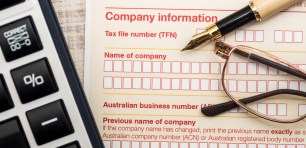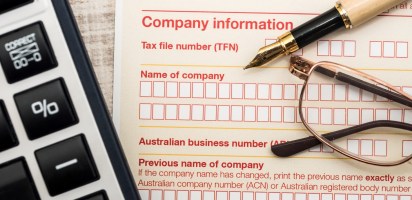
Source: Dan Peled / AAP
The federal government has outlined its legislative plan for the Small Business Energy Incentive, framing expectations around the $20,000 ‘bonus’ tax deduction while excluding high-cost upgrades like new electric vehicles.
The new measure, formally announced in the 2023-2024 federal budget, is intended to provide an extra 20% tax deduction on energy-efficient business upgrades valued at up to $100,000.
Businesses with an annual turnover below $50 million will be eligible under the Labor government’s plan, echoing the recently-enacted Technology Investment Boost and Skills and Training Boost packages.
The package is intended to boost small business investment in energy-efficient technology, a move the federal government claims will both reduce Australia’s carbon footprint and shield SMEs against soaring power bills in the long run.
Get daily business news.
The latest stories, funding information, and expert advice. Free to sign up.
Overall, the federal government expects the package to be valued at $314 million over four years.
Treasury revealed draft legislation for the measure this week, giving small businesses insight into how the scheme may work.
What is eligible?
In the lead-up to the draft legislation, Small Business Minister Julie Collins said the boost will cover the electrification of energy-efficient heating and cooling systems, refrigerators, induction cooktops, batteries, and heat pumps among other upgrades.
The draft legislation is more specific, stating eligible upgrades will include:
- Assets which use electricity, where a new “reasonably comparable depreciating asset” which uses fossil fuels is also available on the market.
Alternatively, the policy covers assets where all of these criteria are met:
- Uses electricity
- The new asset is more energy efficient than the asset it is replacing
- If it is not replacing or substituting an existing asset, it is more energy-efficient than comparable assets on the market.
Or assets which enable one or more of the following:
- The use of electricity or energy from a renewable source
- The storage of electricity or energy from a renewable source
- The capability to use that electricity or energy at a different time
- The monitoring of energy usage from a renewable source.
What isn’t eligible?
Businesses should note this policy does not cover solar panels or similar energy-generating assets.
“An asset that solely or predominantly generates electricity from a renewable source (for example, photovoltaic cells)” will not be covered, the draft paperwork says.
The policy covers assets that actively use electricity, suggesting other non-powered upgrades which improve energy efficiency — like insulation or double-glazed windows — will not be eligible.
Other federal government policies, like the separate Energy Efficiency Grants for Small and Medium-Sized Enterprises scheme, do cover upgrades like insulation and glazing.
Notably, the Small Business Energy Incentive draft legislation explicitly excludes spending on “a motor vehicle or expenditure on a motor vehicle”, categorically ruling out ‘bonus’ tax deductions when purchasing a new electric vehicle.
Assets which use fossil fuels, except where that usage is “incidental”, are ruled out.
“An asset, or expenditure on an asset, where expenditure on the asset is allocated to a software development pool” are not included.
Deductions that would otherwise come under rules covering the construction of buildings and other capital works are also out.
Interest payments on eligible assets are not covered, either.
What time period does it cover?
Under the draft legislation, expenses incurred between 30 June 2023 and before 1 July 2024, for assets installed and ready for use in the same time frame, will be eligible for the bonus deduction.
It is also expected that small businesses claiming the deduction will use the asset for the duration of its effective life, for a taxable purpose.
What do industry representatives say?
Industry groups including the Australian Retailers Association and the Victorian Chamber of Commerce and Industry have welcomed the policy, calling it an important step to alleviate power bill pressures for participating businesses.
“SMEs are feeling the pressures from energy bill shocks harder than most, so any relief to reduce their costs is a welcome contribution,” Victorian Chamber chief executive Paul Guerra said.
However, some questions remain over the shape of this policy.
Replacing gas cooktops with induction technology would feasibly be covered by the draft legislation, but some restaurateurs say the actual cost of those replacements will still overshadow the benefit of the bonus deduction.
Ongoing skills shortages mean businesses may struggle to find the right contractors to install relevant upgrades, said CPA Australia business policy expert Gavan Ord, who said it was “unfortunate” the scheme will only cover one financial year.
The age of Australian entrepreneurs and their decreased appetite for innovation compared to regional counterparts could also limit the scheme’s effectiveness, he suggested.
Other concerns exist in regional and rural Australia.
“It would be a missed opportunity if this policy doesn’t cover new renewable energy generation like solar panels,” National Farmers’ Federation chief executive Tony Mahar said in May.
What else should I know?
As this is still draft legislation, a lot can change between now and its introduction into Parliament.
Then there is the matter of whether it passes into law at all.
The Technology Investment Boost and Skills and Training Boost packages, which the Small Business Energy Incentive closely mirrors, enjoyed broad bipartisan support.
However, it was packaged with more contentious measures in an omnibus bill, leading to its passage being heavily delayed.
A failed amendment was put forward by Independent Senator David Pocock to extend the eligibility period of the Technology Investment Boost to allow more small businesses to take part.
Given Pocock’s opposition to continual gas usage in homes, it will be interesting to see if the crossbench kicks up any amendments designed to expand business eligibility or the time frame for relevant expenditure.
The exclusion of EVs is also notable, especially as the Temporary Full Expensing which allowed small businesses to claim major deductions on work vehicles has given way to a new, lowered Instant Asset Write-Off threshold.
Stakeholders are welcome to comment on the draft legislation, with the Treasury accepting submissions until July 18 this year.
Handpicked for you

ATO call centres unable to meet demand as tax office urges Australians to check online services




COMMENTS